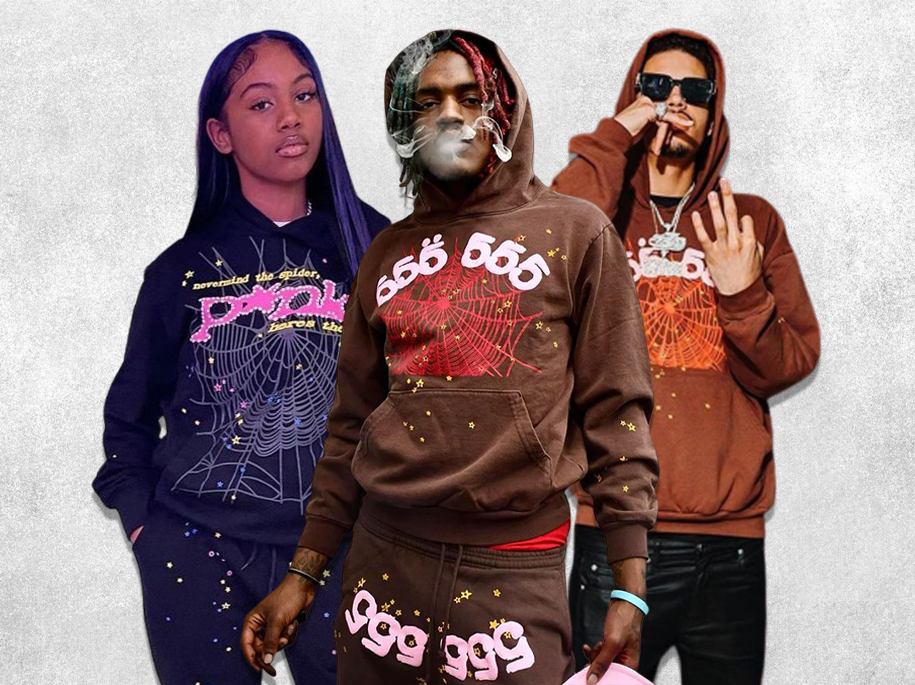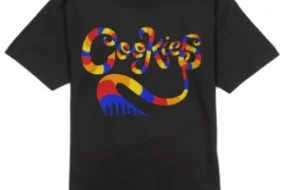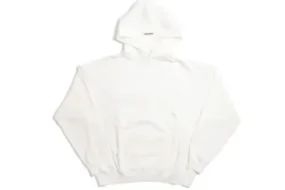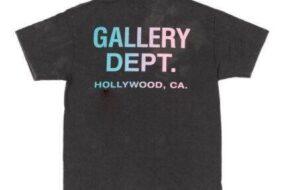
Embracing Technological Advancements
In today’s fast-paced global market. The fashion industry stands at a crucial crossroads where innovation plays a pivotal role in shaping its trajectory. Visit now Sp5der hoodie As consumer preferences evolve and technological advancements accelerate. Fashion brands must embrace innovation to stay relevant, sustainable, and profitable.
Integration of Artificial Intelligence
Artificial Intelligence (AI) has emerged as a game-changer in the fashion industry. Revolutionizing everything from design and manufacturing to marketing and customer service. Machine learning algorithms analyze vast amounts of data to predict trends, optimize supply chains, and personalize customer experiences. For instance, AI-powered virtual assistants provide personalized styling recommendations based on individual preferences, enhancing customer engagement and satisfaction.
Sustainable Practices through Technology
Innovation in technology has also catalyzed the adoption of sustainable practices across the fashion supply chain. Advanced materials science has led to the development of eco-friendly fabrics and manufacturing processes that minimize environmental impact. From biodegradable textiles to waterless dyeing techniques. These innovations not only reduce carbon footprints but also resonate with the growing eco-conscious consumer base.
Digital Transformation in Retail
The digital age has reshaped consumer behavior, prompting fashion brands to embrace e-commerce and omnichannel strategies. Online platforms offer global reach and accessibility, allowing brands to connect directly with consumers worldwide. Moreover, integrated omnichannel approaches provide seamless shopping experiences across physical stores. Websites, and mobile apps, enhancing customer convenience and brand loyalty.
Virtual Reality and Augmented Reality Experiences
Virtual Reality (VR) and Augmented Reality (AR) have redefined the retail landscape by offering immersive shopping experiences. AR-powered apps allow consumers to interact with virtual models showcasing different outfits. Thereby bridging the gap between online browsing and in-store shopping experiences.
Innovations in Design and Manufacturing
3D printing technology has revolutionized design and manufacturing processes in the fashion industry. Check it now https://spiderofficial.us/ Designers can create intricate prototypes and customized garments with unprecedented speed and precision. This innovation not only reduces waste but also enables on-demand production, thereby optimizing inventory management and minimizing overstocking issues.
Collaborations with Tech Companies and Startups
Collaborations between fashion brands and tech companies or startups have become increasingly prevalent. Fostering a culture of innovation and cross-industry expertise exchange. These partnerships often result in groundbreaking developments. Such as wearable technology integrating health monitoring sensors or smart fabrics that adjust to environmental conditions.
Demand for Personalization and Sustainability
Consumer behavior trends indicate a growing demand for personalized and sustainable fashion choices. Modern consumers seek products that reflect their unique identities while aligning with their ethical values. Brands that prioritize customization and sustainability not only meet consumer expectations but also differentiate themselves in a competitive market landscape.
Shift Towards Circular Fashion Economy
The concept of a circular fashion economy is gaining momentum as brands explore innovative ways to extend product lifecycles and reduce waste. Initiatives such as clothing rental services, upcycling programs, and take-back schemes encourage consumers to participate in sustainable consumption practices. This shift towards circularity promotes resource efficiency and reinforces brand commitment to environmental stewardship.
Redefining Beauty
Despite these challenges, there is a growing movement within the fashion industry to challenge conventional beauty standards and embrace diversity. Designers, brands, and influencers are increasingly championing inclusivity. Featuring models of different ages, ethnicities, sizes, and abilities in their campaigns and runway shows. By showcasing a more diverse range of beauty. They challenge the notion that there is only one ideal standard to aspire to.
Celebrating Diversity
Fashion has the power to celebrate the uniqueness and diversity of individuals, showcasing beauty in all its forms. Brands like Fenty Beauty, Savage x Fenty, and Chromat have been at the forefront of this movement. Prioritizing inclusivity and representation in their marketing and product offerings. Their commitment to diversity sends a powerful message. That beauty is not confined to a specific mold but rather encompasses a spectrum of identities and experiences.
Empowering Individuals
By embracing diversity and promoting inclusive beauty standards, the fashion industry has the potential to empower individuals to embrace their own unique beauty. When people see themselves represented in fashion media, they are more likely to feel validated and accepted, regardless of whether they conform to traditional beauty norms. This validation can have a profound impact on individuals’ self-esteem and sense of self-worth, fostering a culture of acceptance and self-love.
Conclusion
The future of the fashion industry undeniably hinges on innovation across all facets of its operations. Embracing technological advancements, pursuing sustainable practices, and responding to evolving consumer behaviors are imperative for brands aspiring to thrive in a competitive global market. By leveraging innovation as a catalyst for growth and transformation, fashion brands can not only meet current demands but also shape the future of an industry at the intersection of creativity and commerce.










